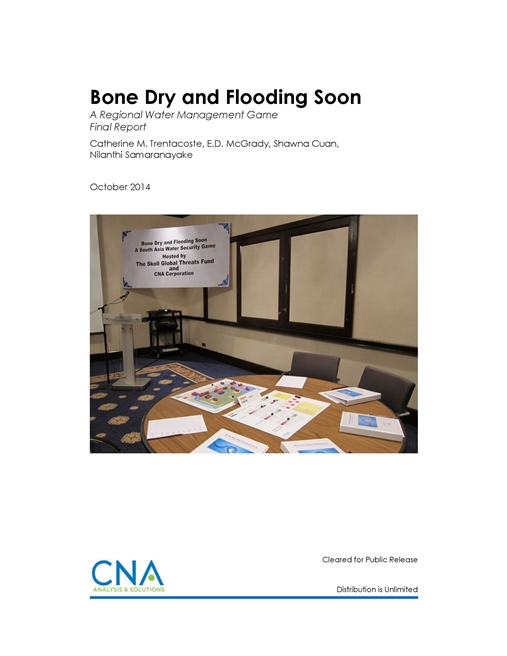Water is a natural resource that crosses human-imposed boundaries within and between countries. When it crosses boundaries, upstream and downstream interests can come into conflict over water sharing and water quality. In the past, these challenges have been resolved peacefully through political and treaty processes. However, in regions such as the Indian subcontinent where there are pre-existing reasons for conflict, water issues can increase the intensity of the conflict or promote cooperation. Tensions may also increase if droughts and floods intensify, or with greater precipitation variability due to climate change.
The Skoll Global Threats Fund (SGTF) was interested in two issues: (1) understanding how countries decide to share water information within their wider political and economic considerations, and (2) whether sharing information about water would facilitate cooperation on water management on the Indian subcontinent. In 2013 the SGTF asked CNA Corporation (CNA) to design and execute a game exploring this question. Specifically, the SGTF was interested in understanding the interactions between Bangladesh, China, India, and Pakistan.
The first instance of the game took place in January 2014 in the Washington, DC area, and was played primarily by American subject matter experts. The second instance of the game was held in June 2014 in Kuala Lumpur, Malaysia, and was played by retired senior officials with policy and military backgrounds, and water experts from all four South Asian countries. This document summarizes the second (regional) instance of the game, identifies strategic insights from the regional instance, and compares the two instances deriving further insights based on that comparison.
Download reportDistribution is Unlimited.
Details
- Pages: 42
- Document Number: IRM-2014-U-008457-Final
- Publication Date: 10/1/2014
